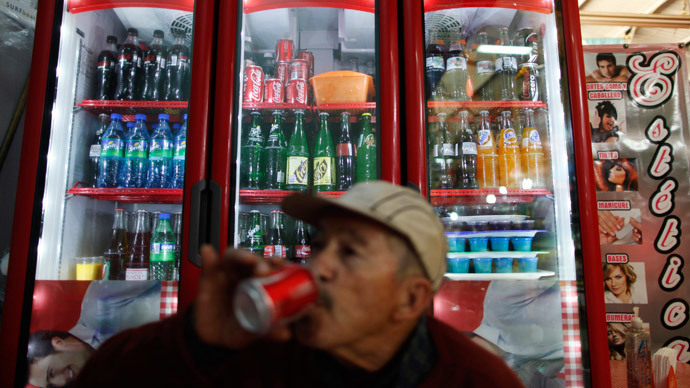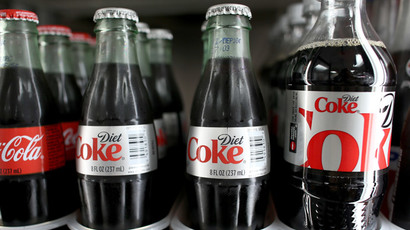Minus 4 years of life: Study links soft drinks to accelerated cell aging

The regular consumption of fizzy drinks accelerates cellular aging of tissues, according to a new study by American scientists. People who enjoy daily carbonated sodas experience DNA changes, aging their cells by four years.
After studying over 5,300 "healthy adults" in the US – aged between 20 and 65 years old, who had no history of diabetes or cardiovascular disease – the researchers found that the biological age of those who have been drinking fizzy drinks daily was increased – thus potentially shortening their lifespan.
Cell aging, prompted by sugary soft drinks including cola, is similar to the aging caused by excessive smoking, says the report, which was published in the American Journal of Public Health.
Scientists from the University of California in San Francisco based their study on the examination of telomeres – a part of chromosomes, previously linked with human lifespan.
Each habitual can of soda makes telomeres physically shorter, scientists say, not only decreasing a life cycle, but also possibly causing the development of diseases such as diabetes, heart disease, and some forms of cancer.

The researchers say only sugar-sweetened fizzy drinks cause cell changes. Telomeres were not affected by diet soda, and those who drank fruit juices actually lengthened their telomeres.
The over-consumption of soft drinks has long been linked to obesity and other health problems. In September, Russia's Public Chamber came up with an initiative to ban selling sodas to children under 14 years of age. The proposition has been sent for government review.
Energy drinks are now in the spotlight too. Said to have bad effects on health, especially in children and teenagers, Lithuania voted to make the sale of energy drinks to minors illegal earlier this year. Parliament voted to prohibit highly caffeinated beverages to people under the age of 18, making Lithuania the first EU country to enact such a ban.














